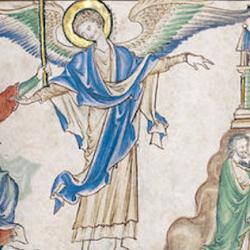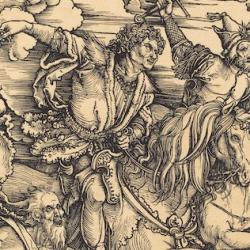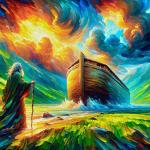John receives a revelation from Jesus about things that “must” ( dei ) shortly take place. As Shylock would say, “Why must they? Tell me that!”
In the gospels, the divine “must” has two main connections: It is the necessity that the Christ should suffer and enter His glory (Matthew 16:21; Luke 9:22; 17:25; John 12:34; 20:9); and it is a necessity that arises from what is written (Matthew 26:54; Luke 22:337; 24:7, 44, 46). Of course, these two are identical in many cases: The Christ “must” suffer, die, and rise again because that is what has been written about Him.
Why must the things unveiled in Revelation take place? The same double must is at work: The saints, like their Lord, must suffer and then enter glory, and this must happen because it has so been written. That last point is important. Old Testament prophecy speaks of Christ, but (as Augustine knew) it speaks of the whole Christ, and the “must” of the Head is also the “must” of the body. Jesus’ sufferings and glory fulfill what has been written, and by the same token, so too do the sufferings and glory of the saints.














